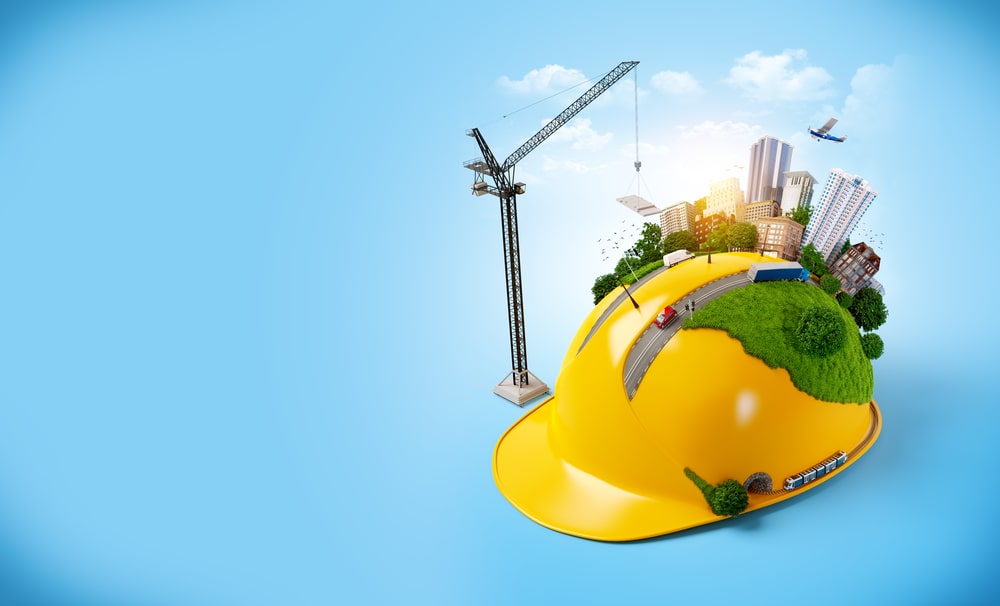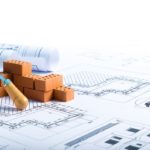News - News
Can Industry Move Towards Greener Working?

Mainmark’s Technical Sales Engineer, David Hedley BEng (Hons), discusses the key issues currently facing the UK building, construction and infrastructure industries.
The construction industry is known for its heavy use of natural resources, which is often an unavoidable part of the process. However, as the UK Government becomes more conscious of climate change and its impact on the world there is an increasing drive to re-think the way we build and re-design the built environment.
The construction industry has come together to call for the government’s ‘Build Back Better’ slogan to pave the way for investment into smarter carbon conscious building projects and for the opportunity to improve existing buildings and infrastructure. The budget announcement on the 3rd March confirmed this priority with the first ever UK infrastructure bank being set up to finance public and private sector green industrial revolution projects and consumers are being offered the chance to put their savings towards supporting green projects. This is the opportunity for a real turning point, but barriers still remain.
What are the current barriers to greener construction?
One way to reduce the impact of construction projects is to focus on repairing and remediating rather than re-building. But, remediation to existing structures is often seen as a labour intensive task and traditional methods such as demolition and rebuilding are preferred. Becoming more sustainable requires a change in mind-set, to think about the kind of innovation and technologies available, to operate more efficiently with less negative environmental impact and with an aim to restore, not re-build, where possible.
This mind-set is not limited to the building sector, as we see this issue frequently in UK infrastructure as well. According to the Asphalt Industry Association (AIA), over 40% of the local road networks in the UK require maintenance within the next year and the cost to deliver these repairs continue to outweigh the budget set aside by the government. The result is often a quick patchwork fix which does not eliminate the problem at its root cause and therefore can require attention multiple times. This is not the best way to keep costs down and cut carbon emissions, and as an industry we need to look at addressing these issues at the root cause to create longevity in our built environment, and truly ‘Build Back Better.’
Time and resources
Construction projects often require the use of heavy plant equipment which take time to operate and emit CO2 in the process. While work is underway to look at ways to power plant and equipment differently, such as Hydrogen powered diggers, we still need to take this opportunity to think differently about the way we undertake projects.
Around half of all non-renewable resources we consume are used in construction,1 yet modern methods of working can be more sustainable. It is essential that we re-use more of our materials in the process, remediate rather than re-build and use fewer raw materials, eliminating the reliance on complex and often international supply chains that have their own unique challenges.
At Mainmark this is something we strongly believe in. Our resin injection solution Teretek® is used in the process of building and infrastructure remediation and is a sustainable and responsible solution that focuses on preservation rather than replacement. It reduces the need for invasive, lengthy traditional ‘underpinning’ works, that create environmental challenges in the methods used. It does not affect groundwater, soil quality, or local wildlife – making the process environmentally inert.
If you would like to read more stories like this, then please click here
Related Articles
More News
- UK Introduces New Trade Measures to Support Steel Sector
11 Jul 25
Steel producers across the UK will benefit from stronger trade measures from 1 July.
- Clean energy future to be ‘built in Britain’
10 Jul 25
The Clean Energy Industries Sector Plan comes into force to ‘build it in Britain’.
- Thousands more to get the tools they need to start construction careers
9 Jul 25
Thousands of people are set to benefit from on-the-job training and career opportunities in the






